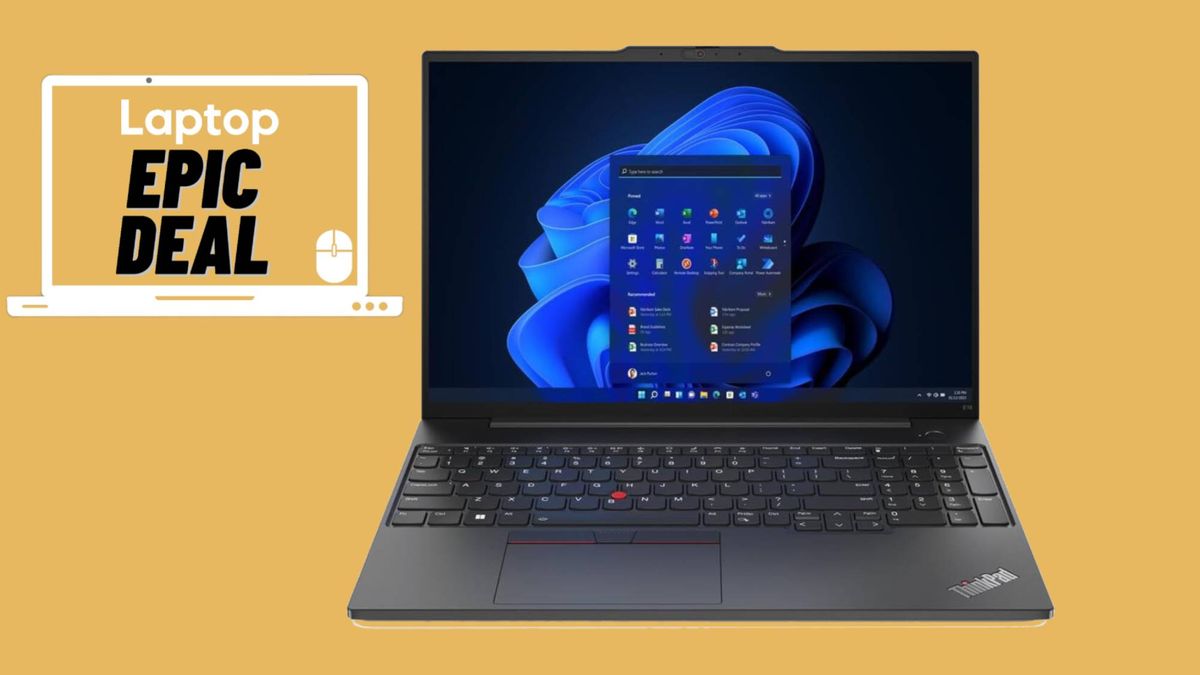

Navigating the world of technology can often feel like learning a new language. This cheat sheet aims to demystify common tech terms and acronyms you’re likely to encounter.You can download the free PDF version of this article at the bottom.AAlgorithmAn algorithm is a set of instructions or rules designed to solve a problem or perform a task. In everyday life, a recipe is an algorithm for cooking a dish.API (Application Programming Interface)APIs are like waiters at your favorite restaurant. They take your requests, talk to the kitchen (the server), and bring back the response. In tech terms, APIs allow different software applications to communicate with each other.Artificial Intelligence (AI)AI refers to machines that can simulate human intelligence processes like learning, reasoning, and problem-solving. It’s like having a really smart robot helper.AgileA project management and software development methodology focused on iterative development, collaboration, and flexibility.AR (Augmented Reality)Technology that superimposes digital information on the real world.AI TRiSM (AI Trust, Risk, and Security Management)A framework ensuring AI models’ governance, trustworthiness, security, and privacy for businesses and end-users.AuracastA Bluetooth technology that allows multiple devices to connect and share audio simultaneously, useful in public announcements and shared audio environments.A/B TestingA method of comparing two versions of content (like web pages or emails) to see which one performs better. Think of it as a digital taste test to find out what your audience prefers.BBandwidthThink of bandwidth as the width of a highway. The wider it is, the more cars (data) can travel at once. In simple terms, bandwidth measures how much data can be sent over an internet connection in a given time.BluetoothBluetooth is a technology for wireless communication over short distances. It’s great for connecting devices like your phone and wireless earbuds.BlockchainA decentralized digital ledger that records transactions across many computers, ensuring security and transparency.BootloaderA bootloader is a small program that runs when a device powers up. It initializes the hardware and loads the main operating system. Think of it as the starter motor of your car, getting everything ready to go.Back EndThe data access layer of software, often all the parts of a project that are necessary to make it work but that aren’t immediately visible to users. Think of it as the backstage crew in a theater production.BugAn error in the code (not your fault!). Bugs are like digital gremlins that cause problems in software.BootstrapTo start a company without external funding. It’s about building a business from the ground up with minimal resources, often relying on personal savings.See also -Updated APN settings for AT&T, Verizon, T-Mobile, Sprint (+4 More)CCacheA cache is like a temporary storage area for frequently accessed data. It speeds up your device by keeping some information readily available, so it doesn’t have to be fetched from the main source every time.Cloud ComputingNo, it’s not about actual clouds. Cloud computing means storing and accessing data and applications over the internet instead of your computer’s hard drive. Imagine your files living on the internet’s giant storage unit that you can access from anywhere.CookiesCookies are small pieces of data stored by your web browser. They remember information about you, like your login details or preferences on a website. Imagine them as digital sticky notes that help websites remember you.CryptocurrencyDigital or virtual currency that uses cryptography for security.Collaborative EcosystemsAn integrated approach where businesses collaborate across industries to innovate, reduce costs, and create new value.Call To Action (CTA)A clear request for the user/visitor to do something, such as “Sign Up,” “Buy Now,” or “Learn More.” Important to include to increase conversion.CRM (Customer Relationship Management)A system for managing a company’s interactions with current and potential customers. It uses data analysis to improve business relationships, focusing on customer retention and sales growth.CSS (Cascading Style Sheets)A language used to describe the presentation of a document written in HTML or XML. It controls the layout of web pages, including colors, fonts, and spacing.CMS (Content Management System)A software application used to create, manage, and modify digital content. Think of it as the control panel for your website.DDomain NameA domain name is your website’s address on the internet, like www.technobezz.com. It’s the human-friendly version of an IP address, making it easier to remember and access websites.DNS (Domain Name System)The system that translates human-friendly domain names (like www.technobezz.com) into IP addresses that computers use to identify each other on the network.DevOpsA set of practices that combines software development and IT operations.DongleA small device that plugs into a computer’s port to provide additional functionality, such as a network connection or extra storage.EEncryptionEncryption is like writing a secret message in code. Only someone with the right key (or code) can read it. This is crucial for keeping your data secure from prying eyes.EthernetA family of wired computer networking technologies.E-InkA technology used in displays that consume less power and can show high-resolution text and images, now being applied to laptops and smartphones.Embed CodeLines of HTML or other code added to a site to display content from elsewhere, like embedding a YouTube video on your site.See also – Android & Samsung Secret Codes: USSD & MMI Code listFFirewallA firewall acts like a security guard for your network, monitoring incoming and outgoing traffic to prevent unauthorized access. Think of it as the bouncer at a club, deciding who gets in and who stays out.FirmwareA type of software that provides low-level control for a device’s specific hardware. It is typically stored in the device’s read-only memory.Front EndThe data presentation layer of software, often all the parts of a project that the user sees, from layouts to animations. Think of it as the user-facing part of a website or app.FAANGAn acronym for the top-performing tech stocks: Facebook, Apple, Amazon, Netflix, and Google. It signifies the dominant players in the tech industry.GGitA version control system used to track changes in source code during software development. It helps multiple developers collaborate and manage changes.GUI (Graphical User Interface)A user interface that includes graphical elements like windows, icons, and buttons, making it easier for users to interact with electronic devices.GDPR (General Data Protection Regulation)EU law on data protection and privacy.HHTML (HyperText Markup Language)HTML is the language used to create webpages. It’s like the skeleton of a website, providing the structure and layout for what you see online.HTTP/HTTPSHypertext Transfer Protocol / Secure, the foundation of data communication on the World Wide Web.Hyper-PersonalizationAdvanced personalization strategies using AI to tailor experiences and interactions based on individual user data.HostingThe way of making your site accessible via the web. It typically involves purchasing a URL and connecting it to your content.IIP Address (Internet Protocol Address)An IP address is like your home address, but for your computer. It’s a unique string of numbers assigned to each device connected to the internet, helping them identify and communicate with each other.IoT (Internet of Things)A network of physical objects (things) embedded with sensors, software, and other technologies to connect and exchange data with other devices and systems over the internet.Large Language Model (LLM)AI models like ChatGPT trained on vast datasets to understand and generate human-like text.IncubatorAn organization that helps startups grow by providing services like mentorship, office space, and investment. Think of it as a nursery for young businesses.IPO (Initial Public Offering)When a company first sells its shares to the public, transitioning from a private to a publicly traded company.JJavascriptA programming language for producing software. It’s essential for web development, enabling interactive elements on websites.KKubernetesAn open-source system for automating deployment, scaling, and management of containerized applications.KanbanA system of organizing tasks to be completed via a board system, common in software development. Often run via programs like Trello or Favro.LLatencyLatency is the time it takes for data to travel from its source to its destination. Lower latency means faster communication, like having a conversation without awkward pauses.MMalwareShort for malicious software, malware is a type of software designed to harm or exploit any programmable device, service, or network. Think of it as digital vandalism.MicroservicesAn architectural style that structures an application as a collection of loosely coupled services, each serving a specific business function.Machine VisionThe technology and methods used to provide imaging-based automatic inspection and analysis.MetaverseA digital world where users interact using AR and VR technologies, creating parallel social and economic activities.MVP (Minimum Viable Product)The smallest possible version of your project that has the core functionality. You produce an MVP to test your project out early and modify it through an agile process.If you enjoyed this story, be sure to follow us and subscribe to our free daily newsletter.NNeural HeadphonesHeadphones that incorporate neural technologies to interact with computers using brainwave, muscle, and gyroscopic sensors.OOperating System (OS)Your OS is the software that manages all the hardware and other software on your computer. Windows, macOS, and Linux are all examples of operating systems. It’s like the master controller of your computer.Open SourceSoftware for which the original source code is made freely available and may be redistributed and modified.PPhishingPhishing is a sneaky way scammers try to steal your personal information. They often pretend to be a trustworthy entity (like your bank) and trick you into giving up your details. It’s like someone calling and pretending to be from your credit card company to get your info.PythonAn open-source programming language known for its readability and versatility. It’s used by organizations like CERN, Google, and NASA.See also -27 Hidden iPhone Features Everyone Should Know AboutRRAM (Random Access Memory)RAM is your computer’s short-term memory. It temporarily stores data that your computer needs to access quickly. The more RAM you have, the more efficiently your computer can perform multiple tasks at once.RouterA router is a device that connects multiple networks and directs data between them. It’s like a traffic cop for your internet connection, making sure everything gets where it needs to go.Rich Communication Services (RCS)An upgrade to SMS, providing features like high-resolution photo sharing, read receipts, and enhanced messaging capabilities.Responsive DesignA way of building software so that it presents and functions well on all devices, from desktops to smartphones.SSSL (Secure Sockets Layer)SSL is a security technology that ensures data passed between the web server and browsers remains private. It’s like sealing your letter in an envelope before mailing it.SDK (Software Development Kit)A set of tools, libraries, and documentation that developers use to create software applications for specific platforms.SpamUnwanted or unsolicited digital communication, often sent in bulk.SpywareMalware that secretly monitors and collects information about a user’s activities without their knowledge or consent.Sentiment AnalysisAI-driven analysis of textual data to understand and respond to emotional cues, enhancing customer service and business strategies.Spatial Video3D video capture technology used in devices like the latest iPhone models, creating immersive video experiences.ServersThe computers where the code to run your websites and data on lives. They handle requests and deliver content to users’ browsers.SoW (Statement of Work)A contract detailing the deliverables, timelines, and key details about a given project. It’s like a blueprint for what needs to be accomplished.SaaS (Software as a Service)A software licensing and delivery model where software is accessed online via a subscription rather than installed on individual computers. Think of it as renting software instead of buying it.ScaleTo grow or expand a business significantly while maintaining or increasing efficiency. It’s about handling more customers, users, or data without compromising performance.SEO (Search Engine Optimization)The practice of optimizing a website to rank higher in search engine results pages (SERPs), thereby increasing organic traffic.ShadowbanA stealth ban where a user’s posts are hidden or less visible without them knowing. It’s like being in a conversation where everyone ignores you without telling you why.See also- Everything Google Knows About You (And How to Stop It)TTrojan HorseNamed after the ancient Greek story, a Trojan Horse is a type of malware disguised as legitimate software. Once inside your system, it can cause damage or steal information.UURL (Uniform Resource Locator)A URL is the web address you type into your browser to visit a site. It’s like the street address for a webpage. UI (User Interface)The means by which a user interacts with a computer, software, or application, including elements like screens, menus, and icons.UX (User Experience)The overall experience a user has with a product or service, focusing on usability, accessibility, and pleasure in the interaction.User TestingThe process by which you can test a site/app/other build with people and record feedback to improve its design and functionality.UnicornA privately held startup company valued at over $1 billion. It’s as rare and magical in the business world as the mythical creature.VVirusA virus is a type of malware that can replicate itself and spread to other devices. Think of it as a digital infection that can make your computer sick.VPN (Virtual Private Network)A VPN extends a private network across a public one, allowing users to send and receive data securely. Think of it as a secure tunnel for your internet traffic.VR (Virtual Reality)Computer-generated simulation of a three-dimensional environment.VirtualizationCreating virtual versions of physical hardware, operating systems, and networks to optimize resources and run multiple environments on a single system.Vector ImagesImage formats like SVG or EPS that can scale infinitely without losing quality or pixelating. They’re essential for logos and graphics that need to be resized frequently. WWi-FiWi-Fi is a technology that allows devices to connect to the internet wirelessly. It’s like the wireless version of the internet cable.WebinarAn online seminar or presentation conducted over the internet, often used for training, discussions, and sharing information.WaterfallA methodology for delivering a project that outlines a specific list of functionality. It’s a more linear and sequential approach compared to agile methods.Web AppA website that presents and functions like an app but lives on the web rather than on a device. Examples include Gmail and Google Docs.WYSIWYG (What You See Is What You Get)A form of editor that allows you to modify content in your CMS in a way that closely looks like how it will present on the live site. It’s like editing a document in Word and seeing exactly how it will appear when printed.XXML (eXtensible Markup Language)A markup language that defines rules for encoding documents in a format that is both human-readable and machine-readable.YYottabyteA unit of digital information storage equal to one septillion (10^24) bytes, or 1,024 zettabytes.ZZero-DayA software vulnerability that is unknown to the party responsible for patching or fixing the flaw. This term is often used to describe security holes exploited by hackers before the developer has had a chance to address them.ZettabyteA unit of digital information storage equal to one sextillion (10^21) bytes, or 1,024 exabytes.#5GThe fifth generation of cellular network technology.If you enjoyed this story, be sure to follow us and subscribe to our free daily newsletter. You can download the free PDF version of this article here.





